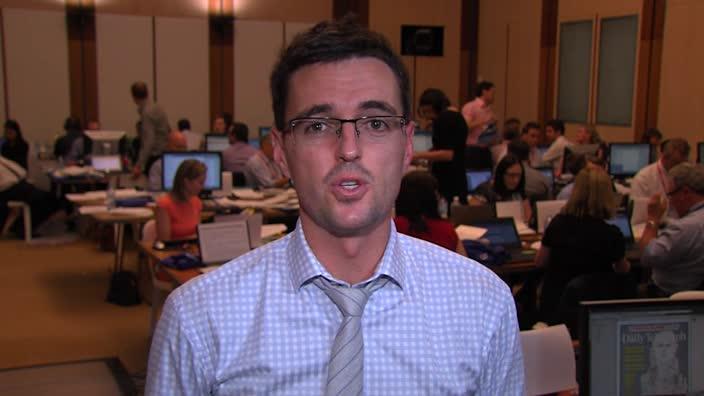ANU vice chancellor predicts university course fees to rise 30 per cent after Budget 2014
THE Vice-Chancellor of a leading university warns course fees will soar by at least 30 per cent on the heels of the federal budget.

STUDENTS could be forced to pay tens of thousands of dollars more for degrees, with the Vice-Chancellor of one of Australia’s leading universities warning course fees will soar by at least 30 per cent on the heels of the federal budget.
The chair of the Group of Eight and the Vice Chancellor of the Australian National University, Ian Young, has predicted higher education costs will increase by almost a third, just to make up for reductions in federal government funding.
The warning by one of the nation’s leading educators came as the National Tertiary Education Union predicted prestigious ‘sandstone’ universities across the country will likely begin charging more than $100,000 from 2016 for degrees like medicine and law.
FEDERAL BUDGET 2014: What you have missed
FEDERAL BUDGET 2014: How it means for you
FEDERAL BUDGET 2014: Universities to change degree costs
In Tuesday night’s federal budget the Abbott government announced it would allow universities to determine how much they charge students for courses for the first time. It will also reduce the amount of money it pays universities for each course by an average of 20 per cent, and increase the indexation on higher education loan debts.
GRADUATES: ‘Why I can’t afford to leave university’
Writing on his ANU blog, Professor Young said “universities will need to increase fees by 30 per cent, on average, just to cover the lost funding”.
Currently students pay anywhere between $18,000 for a three year humanities degree to just over $60,000 for a six year medical degree, with average student loans being about $30,000.
This would mean students could be paying up to $10,000 more for degrees, even before universities look at lifting their fees for high demand course.
The NTEU has warned some of Australia’s leading universities will likely begin charging more than $100,000 for law and medical degrees, when the changes come into effect in 2016.
A spokeswoman for the union said some universities have already moved to charge medical students — who fail to meet the entry requirements for Commonwealth higher education loans — about $200,000 to study medicine as full fee paying students.
But Professor Young said “claims of $200,000 degrees are alarmist”.
“This is not entirely new territory. We have a fee-deregulated environment for Australian postgraduate education which has operated without such cost blowouts,” he said.
Education Minister Christopher Pyne would not speculate on degree hikes. He said, “prices might go up or they might go down, depending on competition.”
The debate about rising university fees came as a major new report released today showed the global standing of Australia’s universities is slipping.
The annual Universitas 21 Ranking report has rated Australia’s higher education system ninth out of 50 countries, down one place from 2013.
It means Australian universities are lagging behind countries including the United States, Canada, the United Kingdom and Denmark across the key areas of resources, environment, connectivity and output.
The lowest ranking across the four criteria was for university resourcing, with the report placing Australia behind 39 other countries for government expenditure on higher education.
Universitas 21 Ranking lead author Ross Williams from the Melbourne Institute of Applied Economic and Social Research at the University of Melbourne said the fastest way to boost Australia’s standing would be to allocate more funds for research.
But commenting on the government’s push to give universities more autonomy, Professor Williams said, “deregulation will help by giving institutions more overall resources”.
Mr Pyne said the government’s higher education reforms mean “more of our universities now have every chance of making it into the world top 200.”
Vice-Chancellor of the University of Melbourne Glyn Davis also said the push toward a deregulated university system would encourage greater niche areas of research excellence.
“Greater autonomy should encourage universities to concentrate on their areas of expertise, so each institution presents a more distinctive profile,” Professor Davis said.
Originally published as ANU vice chancellor predicts university course fees to rise 30 per cent after Budget 2014
